On the stage of the recent Bui Xuan Phai Award - For the Love of Hanoi ceremony, musician Tran Tien hugged his guitar and sang songs about Hanoi. Nearing his eighties, he still retains the worldly charm of a "wandering wanderer."
Although he has lived in Ho Chi Minh City and Ba Ria-Vung Tau for the past few decades, Hanoi is still a "part of his soul" present in many of his songs for musician Tran Tien. He said that Hanoi "is my mother, my sister, my childhood friends" - the things that are most closely connected to the musician.
The nomad in music
Musician Tran Tien was born in 1947 into a famous artistic family. He is the younger brother of People's Artist Tran Hieu and the uncle of diva Ha Tran.
As a young man, Tran Tien did not intend to devote his life to music but loved science. But then fate pushed him to become a backstage worker for a Hanoi art troupe.
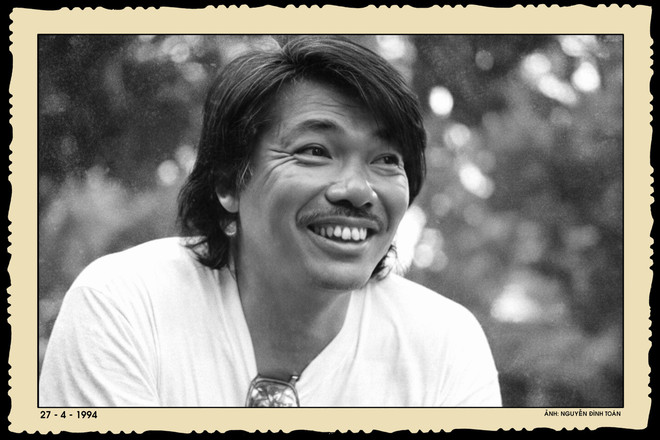
From then on, Tran Tien and his troupe traveled throughout the Central region, even to fierce battlefields such as Vinh Linh and Quang Binh. In the midst of the war, his first melodies were sung: “Beautiful Sam Neua Girl,” “Song of Youth Going to the Frontline” - two songs that won the A prize in the “Singing Over the Bombs” contest and opened a musical style that was distinctly Tran Tien.
After the war, he studied at the Hanoi Conservatory of Music (now the Vietnam National Academy of Music), graduating from the vocal and symphonic composition department in 1978. His first post-war songs such as “Melody of the Fatherland,” “Round Footprints on the Sand” ... quickly entered people's hearts, nurturing the patriotism and desire to live of a generation.
In the 1980s, Tran Tien founded the Black-White rock band, toured everywhere, bringing a new breeze to Vietnamese music. Later, he founded the Du ca dong noi group - singing to raise money to build schools for orphans.
Since the 1990s, Tran Tien's compositional style has changed from pure Pop to contemporary folk style with songs such as "Red River Improvisation", "Homeland" ...
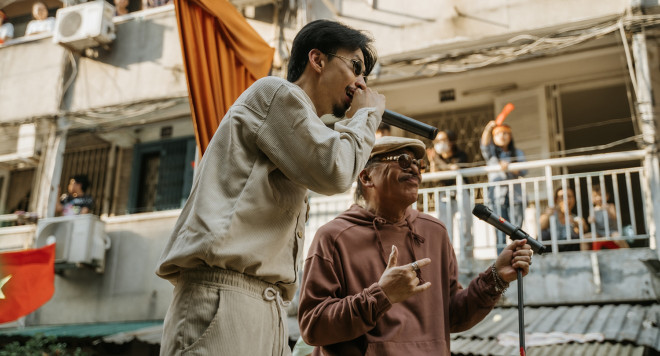
In 2020, Tran Tien was diagnosed with stage 4 nasopharyngeal cancer. Tran Tien said he had undergone more than 30 radiation treatments, many times thinking he would never recover. But in his most exhausting moments, music saved him once again.
“By the 30th radiation treatment, I couldn’t get up. But the melodies told me: Where is Tran Tien? Get up, don’t be so cowardly! And I wrote the song ‘Don’t Fall Down’ to encourage myself,” the musician recalled.
Thanks to his talent and great dedication to music, Tran Tien received the State Prize for Literature and Arts in 2007. In addition, he has won many other awards. He is a musical "monument" respected by junior singers and musicians. Many singers choose Tran Tien's music and leave an impression on the audience with Tran Tien's songs such as Ha Tran, Tung Duong, Thanh Lam, Ngoc Anh, Phuong Thao...
Send love to Hanoi in music
In his massive career, Tran Tien is not a musician who specializes in writing about Hanoi, but the Hanoi theme in Tran Tien's music is considered outstanding and has its own distinct mark.
Sharing with reporters from VietnamPlus Electronic Newspaper, he named some of the songs about Hanoi that he liked the most: “Red River Improvisation,” “Red River Traveler,” “Hanoi in the Past,” “Hanoi in the 2000s,” “Street Improvisation,” “Poor Street,” “Little Sun,” “Hometown” …
Having lived away from home for 45 years, he still misses Hanoi. The capital has always been a sacred thing for Tran Tien: “When I walk down the street and hear someone speak with their hometown accent, I feel like crying. I don’t understand why Hanoi has such a great attraction for people far from home.”
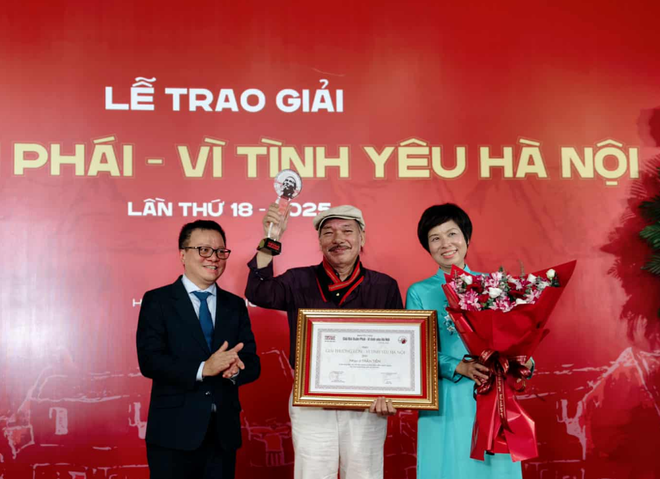
Talking about his love for the capital, Tran Tien confided: “Hanoi is my mother, my sister, my childhood friends. No matter how rich or poor, sick or lonely anyone may be, my heart will always remain in my hometown Hanoi. Besides, I have nothing more to say. I have put all the things I need to say into my songs.”
When receiving the Bui Xuan Phai Award - For the Love of Hanoi, he said that he had learned to draw since he was 7 years old, so he had some knowledge of painting. The famous painter Bui Xuan Phai as well as the previous generations of artists gave Tran Tien his first feelings of Hanoi. He brought that love of Hanoi to the battlefield, around the world, and even during his wandering days.
“Hanoi has changed a lot. The houses are tall and the doors are wide. There are many new streets that I have never known. That is a good thing. But in me, the image of old Hanoi like Bui Xuan Phai’s paintings still remains. Wherever I touch, I tremble with the beloved years, the happy and sad memories like negatives of a distant time,” Tran Tien confided.
Commenting on Tran Tien's music, musician and music researcher Nguyen Quang Long said that his Hanoi theme has a connection created from the "cultural triangle": Red River, Old Quarter, and Xu Doai.
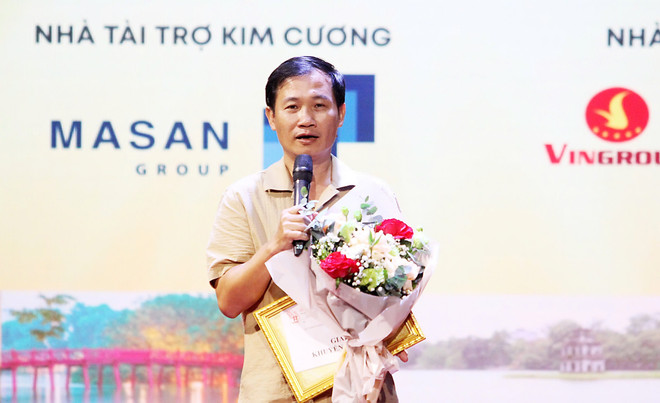
These are not only 3 geographical spaces, but also 3 cultural layers, 3 sources of inspiration combined, shaping the appearance of Hanoi in his music.
According to researcher Nguyen Quang Long, with “Red River Improvisation” or “Red River Traveler,” Tran Tien not only depicts a river flowing through the city, but also revives historical memories, folk songs, folk songs, stories about alluvial deposits and the flow of life of the Vietnamese people. There, Hanoi appears as a cultural center, where the river is both geographical and symbolic.
Hanoi’s Old Quarter is a space of memories and urban life. Songs like “Poor Street,” “Street Improvisation” … have recreated a familiar Hanoi with brown tiled roofs, falling almond leaves, train whistles, and small coffee shops.
Xu Doai in Tran Tien's music appears through folk materials, through images of villages, temples, boats, river banks... This is a place that preserves cultural memories, a folk background that enriches the space of Hanoi in his music.
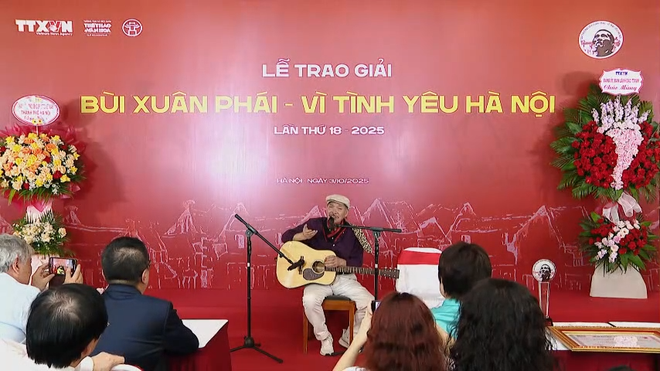
“When reconnected, the Red River-Old Quarter-Xu Doai form a cultural triangle. Thanks to that, Hanoi in Tran Tien’s music is not limited to a city, but becomes a symbol of the convergence between tradition and modernity, between streets and villages, between the flow of alluvium and the sediment of memories. Tran Tien depicts Hanoi not only through place names, but also through an open cultural space, full of vitality and imbued with the Vietnamese soul,” musician Nguyen Quang Long analyzed.
During a recent reunion with Hanoi audiences, he sang “Street Improvisation” as if to demonstrate his love – in Tran Tien’s own way: “Hanoi at the end of the umbrella, a windy afternoon, a person who cannot bear to return. Hanoi in my heart, a distant dream of a person far from home. Oh, who lives and dies, return”./.
Source: https://www.vietnamplus.vn/nhac-sy-tran-tien-nghi-den-ha-noi-run-ray-nho-nhung-thang-nam-yeu-dau-post1069343.vnp


![[Photo] Standing member of the Secretariat Tran Cam Tu works with the Standing Committee of the Party Committee of the Ministry of Health](https://vphoto.vietnam.vn/thumb/1200x675/vietnam/resource/IMAGE/2025/10/10/1760079818773_image-4-6972-jpg.webp)

![[Photo] Prime Minister Pham Minh Chinh attends the Patriotic Emulation Congress of Hanoi city](https://vphoto.vietnam.vn/thumb/1200x675/vietnam/resource/IMAGE/2025/10/10/1760078918257_dsc-2008-jpg.webp)
![[Photo] "Exposing letters" in the flood center of Lang Son](https://vphoto.vietnam.vn/thumb/1200x675/vietnam/resource/IMAGE/2025/10/10/1760080117518_ndo_br_z7101324112737-07cd4d1c01801a8ccf4ae0cbaf31c4a3-507-jpg.webp)



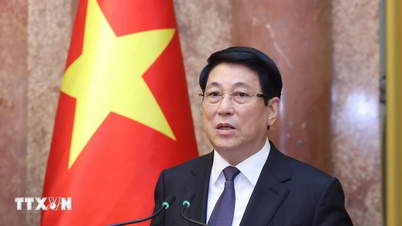



















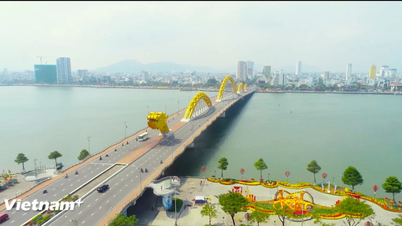



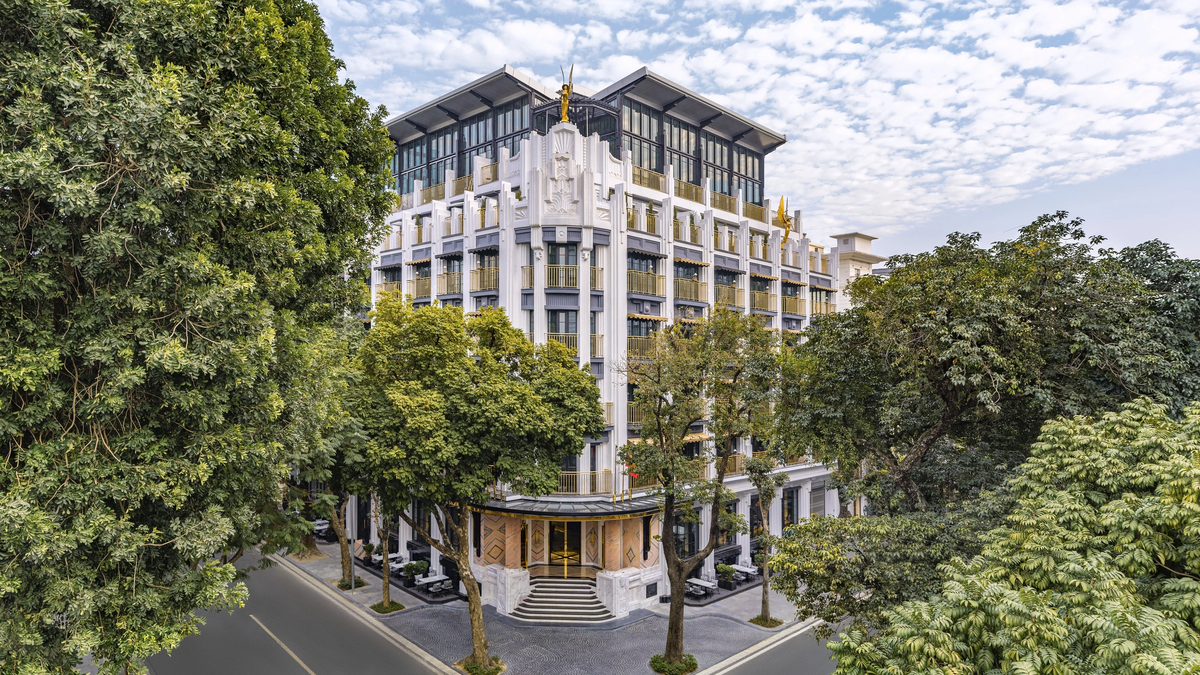























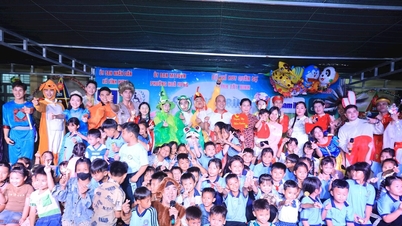







![[Photo] President Luong Cuong presents decisions on conferring titles and appointing Vietnamese Ambassadors](https://vphoto.vietnam.vn/thumb/402x226/vietnam/resource/IMAGE/2025/10/10/1760082105623_image-1.jpeg)

















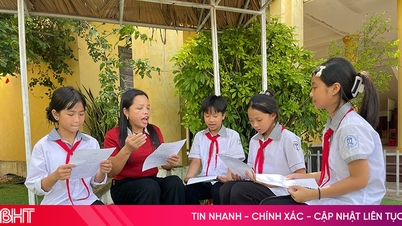






















Comment (0)